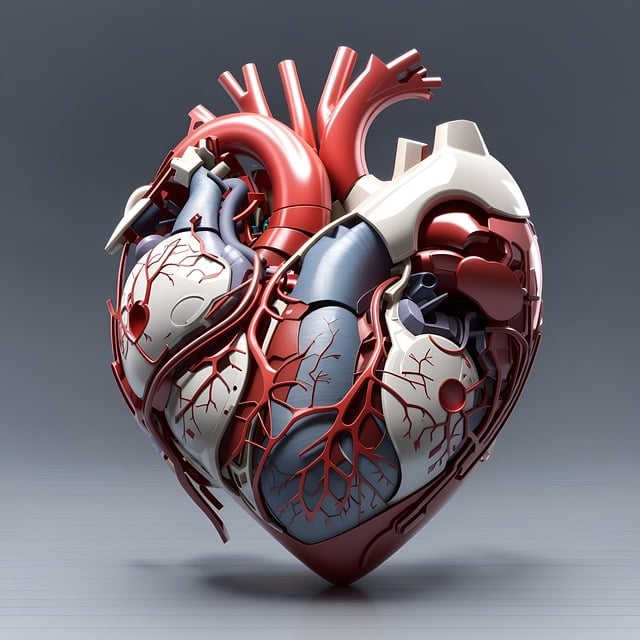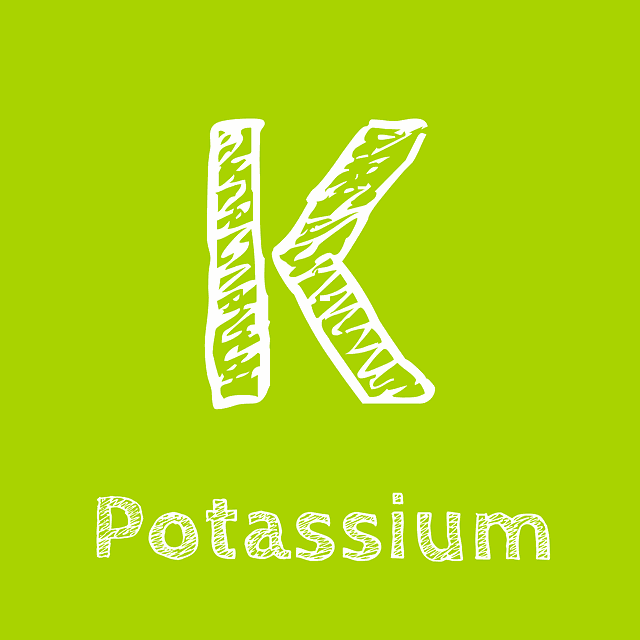Did you know that we human beings are like hybrid cars – part of us runs on chemical fuel and part of us runs on electricity? Just like some hybrid cars our chemical fuel constantly runs to turn a generator called the electron transport chain inside our mitochondria to produce electrical energy which is stored as ATP. Every cell in our body acts like a battery with electrically charged potassium atoms trying to escape and charged sodium atoms trying to get into the cells. The ATP runs a pump on the walls of our cells that pulls 3 sodium atoms out and lets in 2 potassium atoms. This creates an electrical charge difference between the inside of the cell and the outside like what happens in a battery. This difference runs the mechanisms that import sugar, amino acids, and other nutrients the cells need to thrive.
mitochondria to produce electrical energy which is stored as ATP. Every cell in our body acts like a battery with electrically charged potassium atoms trying to escape and charged sodium atoms trying to get into the cells. The ATP runs a pump on the walls of our cells that pulls 3 sodium atoms out and lets in 2 potassium atoms. This creates an electrical charge difference between the inside of the cell and the outside like what happens in a battery. This difference runs the mechanisms that import sugar, amino acids, and other nutrients the cells need to thrive.
We have heard plenty about sodium from the healthc are system as it relates to blood pressure. Too much sodium increases blood pressure. Unfortunately, most of the advice we get is wrong. This is an unavoidable outcome of how research studies are run and interpreted. Data is collected from large numbers of people and then the results are evaluated with statistics. Statistics is great for looking at general patterns in large groups but is almost worthless for guiding decisions in individuals. We, as humans, are all different from each other. The chance of any one of us being completely average is minimal. That makes average recommendations based on statistical averages from studies very unhelpful for determining what we need personally.
are system as it relates to blood pressure. Too much sodium increases blood pressure. Unfortunately, most of the advice we get is wrong. This is an unavoidable outcome of how research studies are run and interpreted. Data is collected from large numbers of people and then the results are evaluated with statistics. Statistics is great for looking at general patterns in large groups but is almost worthless for guiding decisions in individuals. We, as humans, are all different from each other. The chance of any one of us being completely average is minimal. That makes average recommendations based on statistical averages from studies very unhelpful for determining what we need personally.
So why am I offering this information? Well, we need lots of sodium and potassium around every cell in the bod y for normal functioning to occur. Our average American generally consumes lots of sodium because we like to use lots of salt when we process our food commercially. Generally salt is where we get our sodium. On average, 75% of the salt we consume is already in the food even before we heat it. So when a patient tells me they never add salt to their food, it does not mean much. What matters most is if the sodium levels you are consuming are the right amount for you. Well, your body will tell you. Too much salt and your blood pressure will go up chronically. Too little salt (sodium) and your energy levels will go down. Even your blood pressure may drop to the point that when you get up fast from lying down you get dizzy or light-headed for a moment.
y for normal functioning to occur. Our average American generally consumes lots of sodium because we like to use lots of salt when we process our food commercially. Generally salt is where we get our sodium. On average, 75% of the salt we consume is already in the food even before we heat it. So when a patient tells me they never add salt to their food, it does not mean much. What matters most is if the sodium levels you are consuming are the right amount for you. Well, your body will tell you. Too much salt and your blood pressure will go up chronically. Too little salt (sodium) and your energy levels will go down. Even your blood pressure may drop to the point that when you get up fast from lying down you get dizzy or light-headed for a moment.
This article is about potassium. Why am I writing about sodium? The two are intricately linked. But while sodium is e asily acquired for our diet, potassium is not. We need almost as much potassium as we need sodium every day. The recommended intake of sodium for the average person is 2400 mg (adult males 3400mg and adult females 2600 mg). Since salt is 40% sodium, we need around 6000 mg of salt each day – about 1 1/2 teaspoons. Those numbers are true for potassium as well (although I have seen numbers as high as 4700 mg of potassium for adults) if we were taking in our potassium as a potassium chloride salt. That is why I formulate my Balanced Salt with a 50-50 mix of sodium and potassium chloride salts. If Balanced Salt were the only source of sodium and potassium I had, that would mean that I need a tablespoon of it each day. Fortunately, different foods contain both sodium and potassium in other forms. For instance, celery is very high in sodium while potatoes are high in potassium – twice as high as bananas. Everyone mentions bananas for potassium, but they rarely mention that to get your potassium from bananas means eating 6 to 8 bananas each day.
asily acquired for our diet, potassium is not. We need almost as much potassium as we need sodium every day. The recommended intake of sodium for the average person is 2400 mg (adult males 3400mg and adult females 2600 mg). Since salt is 40% sodium, we need around 6000 mg of salt each day – about 1 1/2 teaspoons. Those numbers are true for potassium as well (although I have seen numbers as high as 4700 mg of potassium for adults) if we were taking in our potassium as a potassium chloride salt. That is why I formulate my Balanced Salt with a 50-50 mix of sodium and potassium chloride salts. If Balanced Salt were the only source of sodium and potassium I had, that would mean that I need a tablespoon of it each day. Fortunately, different foods contain both sodium and potassium in other forms. For instance, celery is very high in sodium while potatoes are high in potassium – twice as high as bananas. Everyone mentions bananas for potassium, but they rarely mention that to get your potassium from bananas means eating 6 to 8 bananas each day.
What does potassium do for us other than drive the machinery that gets nutrition into our cells? The most obvious area of benefit is hypertension. Just as too much sodium drives blood pressure up, too little potassium also drives it up. Studies estimate that adequate potassium lowers systolic blood pressure by around 5 points. Calcium and magnesium also lower blood pressure. The potassium helps the blood vessels relax and decreases the volume of the blood plasma the heart has to pump around by allowing the kidneys to excrete excess sodium. Potassium lowers blood pressure thereby reducing strokes, and reduces water retention so we don’t look quite so bloated. Some studies suggest that potassium helps osteoporosis by reducing the amount of calcium the body loses through the kidneys. This one is kind of iffy.
of benefit is hypertension. Just as too much sodium drives blood pressure up, too little potassium also drives it up. Studies estimate that adequate potassium lowers systolic blood pressure by around 5 points. Calcium and magnesium also lower blood pressure. The potassium helps the blood vessels relax and decreases the volume of the blood plasma the heart has to pump around by allowing the kidneys to excrete excess sodium. Potassium lowers blood pressure thereby reducing strokes, and reduces water retention so we don’t look quite so bloated. Some studies suggest that potassium helps osteoporosis by reducing the amount of calcium the body loses through the kidneys. This one is kind of iffy.
The biggest other functions of potassium are maintaining our water balance in the body, regulating muscle contrac tion, and sending nerve signals. These are kind of important. The water in the body is held in place through the action of our electrolytes. Primarily that means potassium for the water inside the cells and sodium for the water around the cells. If that balance between them is not right, the cells will either swell up with too much water or shrink from dehydration. Cells don’t work right in either situation, so water balance is very important.
tion, and sending nerve signals. These are kind of important. The water in the body is held in place through the action of our electrolytes. Primarily that means potassium for the water inside the cells and sodium for the water around the cells. If that balance between them is not right, the cells will either swell up with too much water or shrink from dehydration. Cells don’t work right in either situation, so water balance is very important.
Nerve impulses happen when sodium ions rush into a nerve cell and potassium ions rush out. This changes the electrical voltage difference between the inside and outside of the nerve cell. This voltage change travels down the nerve as those ions move in and out and become the nerve impulse. If you don’t have enough potassium moving around, the size and strength of that impulse get smaller and weaker. Your nerves are firing at lower power. If your nerves are at low power then everything in your body works poorly. Everything operates slowed down – thinking, digestion, movement, temperature regulation, and toxin removal. Have you been feeling slowed down lately?
a nerve cell and potassium ions rush out. This changes the electrical voltage difference between the inside and outside of the nerve cell. This voltage change travels down the nerve as those ions move in and out and become the nerve impulse. If you don’t have enough potassium moving around, the size and strength of that impulse get smaller and weaker. Your nerves are firing at lower power. If your nerves are at low power then everything in your body works poorly. Everything operates slowed down – thinking, digestion, movement, temperature regulation, and toxin removal. Have you been feeling slowed down lately?
Muscle contraction, including the heart muscle, funct ions much the same way as nerve cells do. The movement of electrolytes (sodium, potassium, calcium, and magnesium) triggers the muscle contraction mechanism. All the electrolytes need to be present for proper contractions to occur. The various electrolytes can not substitute for each other. Put in a super simple way, without enough potassium you die. Also, like everything in the body, too much potassium will also cause death. The right amount is the right amount. Too much or too little is the wrong amount. The challenge is figuring out just how much is the right amount for you. You are an individual. Some people are very salt-sensitive and have to keep their sodium levels low. Potassium helps with this. Some people are potassium-sensitive and need less potassium and more sodium. These situations are largely due to differences in kidney functioning. It is the kidneys that are mostly responsible for regulating the balance between sodium and potassium in the body, and everybody’s kidneys function a little bit differently.
ions much the same way as nerve cells do. The movement of electrolytes (sodium, potassium, calcium, and magnesium) triggers the muscle contraction mechanism. All the electrolytes need to be present for proper contractions to occur. The various electrolytes can not substitute for each other. Put in a super simple way, without enough potassium you die. Also, like everything in the body, too much potassium will also cause death. The right amount is the right amount. Too much or too little is the wrong amount. The challenge is figuring out just how much is the right amount for you. You are an individual. Some people are very salt-sensitive and have to keep their sodium levels low. Potassium helps with this. Some people are potassium-sensitive and need less potassium and more sodium. These situations are largely due to differences in kidney functioning. It is the kidneys that are mostly responsible for regulating the balance between sodium and potassium in the body, and everybody’s kidneys function a little bit differently.
There is a common underlying theme I am weaving into this newsletter, the idea of biochemical individuality. Elec trolyte functionality is one of the places that demonstrate this individuality fairly easily. To be healthy, we have to pay attention to what our body is telling us. If we are always tired, we need to listen and experiment with our diet, sleep, activity, air, water, EMF exposure, allergies, and so on to find out what we need to do to support ourselves. This level of attention is not something your medical doctor can help you with. They are trained on the statistical average model of health. They will tell you to do the average and believe that will make your symptoms go away. If you are average, that will work. But if you are not average then you have to do the work yourself. I use a massive symptom checklist at the office to guide my investigations. It is organized to group symptoms into body systems likely to be the cause of the symptoms. If you would like a checklist then just ask the front desk for a health questionnaire.
trolyte functionality is one of the places that demonstrate this individuality fairly easily. To be healthy, we have to pay attention to what our body is telling us. If we are always tired, we need to listen and experiment with our diet, sleep, activity, air, water, EMF exposure, allergies, and so on to find out what we need to do to support ourselves. This level of attention is not something your medical doctor can help you with. They are trained on the statistical average model of health. They will tell you to do the average and believe that will make your symptoms go away. If you are average, that will work. But if you are not average then you have to do the work yourself. I use a massive symptom checklist at the office to guide my investigations. It is organized to group symptoms into body systems likely to be the cause of the symptoms. If you would like a checklist then just ask the front desk for a health questionnaire.
As one of my patients remarked the other day – with out health, nothing else matters. And the deep truth is, we are the ones that have to pay attention to how we feel. Our medical professionals are good for diagnosing serious life-threatening diseases, and for that we are grateful. If what we desire in life is to feel good then it is up to us to figure out what we need to do to make that happen.
out health, nothing else matters. And the deep truth is, we are the ones that have to pay attention to how we feel. Our medical professionals are good for diagnosing serious life-threatening diseases, and for that we are grateful. If what we desire in life is to feel good then it is up to us to figure out what we need to do to make that happen.
Take care,
David
We still have C15 at the office. This is the twice as potent as the popular Fatty 15 supplement. What is it for? We ll:
ll:
Immune function
Heart & lungs
Metabolic health
Joints and red blood cells
Longevity
Cell membranes stronger/less fragile
Pick yours up now! Learn more about it in this video!
https://www.youtube.com/watch?v=fKt3S25Q-as
Ellen
It is Christmas card time and Ellen has been busy pai nting her cards and getting them into envelopes. Today she is putting the last of the addresses on the cards. Hopefully I can get them to the post office. The road was pretty flooded on the way to the post office when I made my present run this morning.
nting her cards and getting them into envelopes. Today she is putting the last of the addresses on the cards. Hopefully I can get them to the post office. The road was pretty flooded on the way to the post office when I made my present run this morning.
|
|
Consuming dark chocolate at least 5 times per week that is at least 45% cacao reduces your chances of developing diabetes because of the polyphenol antioxidants in it. Not only that it has not been shown to increase body weight. Milk chocolate does not have these benefits.
___________________________
“There are no God given rights, only contracts and agreements with others.“
~ David DeLapp
_____________________________________
Excess drinking while young permanently damages your brain
Did you do a little binge drinking in college? Maybe a lot
 of parties in your 20s involved too much alcohol? Well now they know that this gives your brain too much gas and damages the brakes on neuron action in your brain forever. This study looked at drinking in your youth, but I suspect the same damage happens no matter what age you are.
of parties in your 20s involved too much alcohol? Well now they know that this gives your brain too much gas and damages the brakes on neuron action in your brain forever. This study looked at drinking in your youth, but I suspect the same damage happens no matter what age you are.
____________________________
“All judgments are self judgments. We judge the actions of others because we feel the motivations and feelings behind the actions.“
~ David DeLapp
________________________________________
Head buting soccer balls damages your brain
We used to believe that soccer balls were softer and gentler
 than boxing gloves and football tackles. Well they are not. Head butting soccer balls causes traumatic brain injury than can show up years later as neurodegenerative diseases like Alzheimer’s.
than boxing gloves and football tackles. Well they are not. Head butting soccer balls causes traumatic brain injury than can show up years later as neurodegenerative diseases like Alzheimer’s.
_______________________
“No one owes you anything. What you gain is through mutually beneficial trade agreements with others, not through entitlements.“
~ David DeLapp

